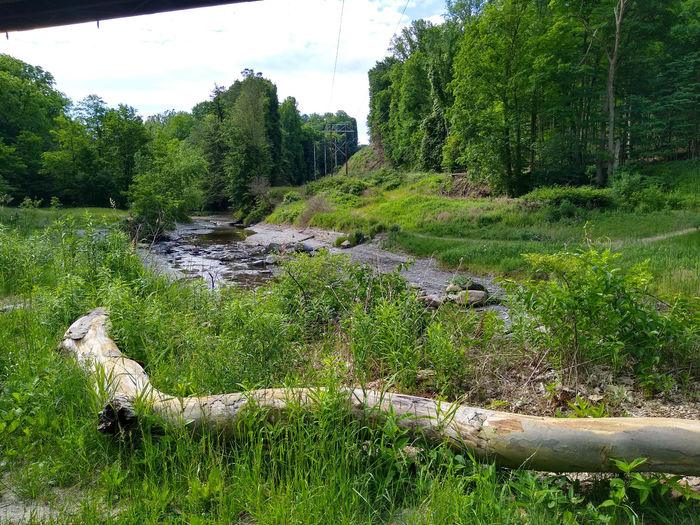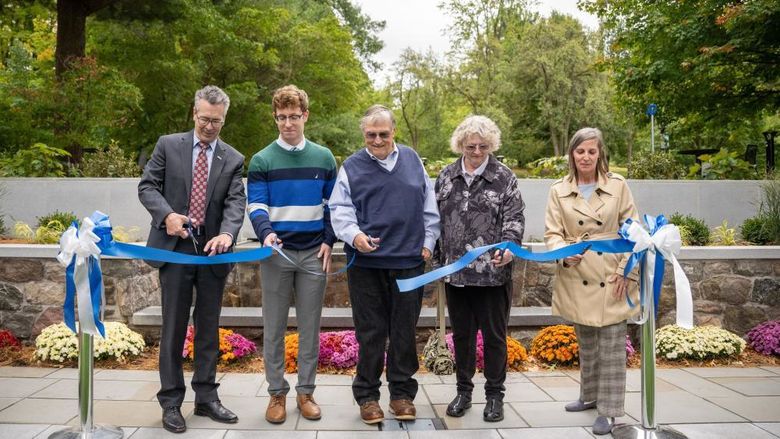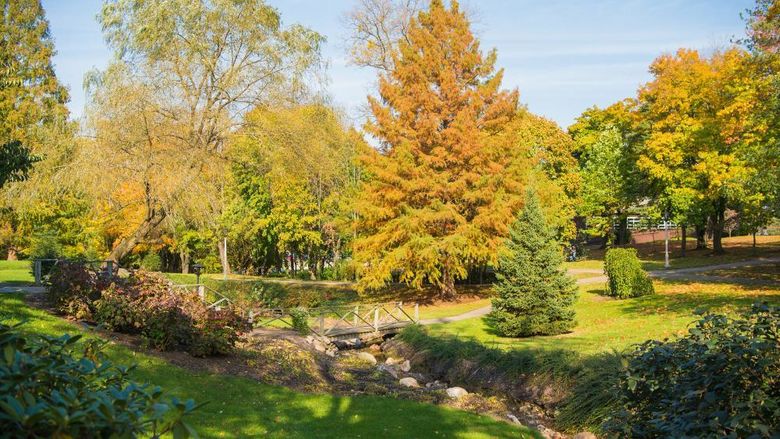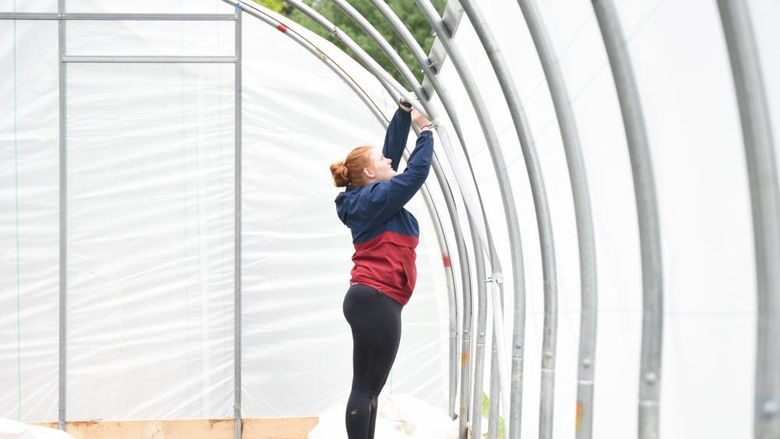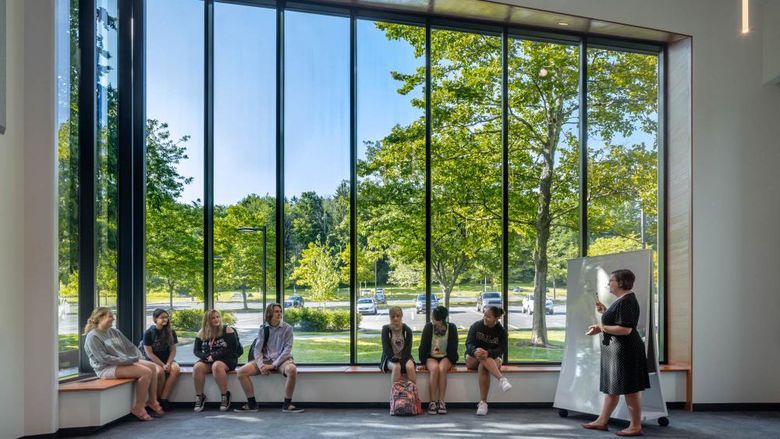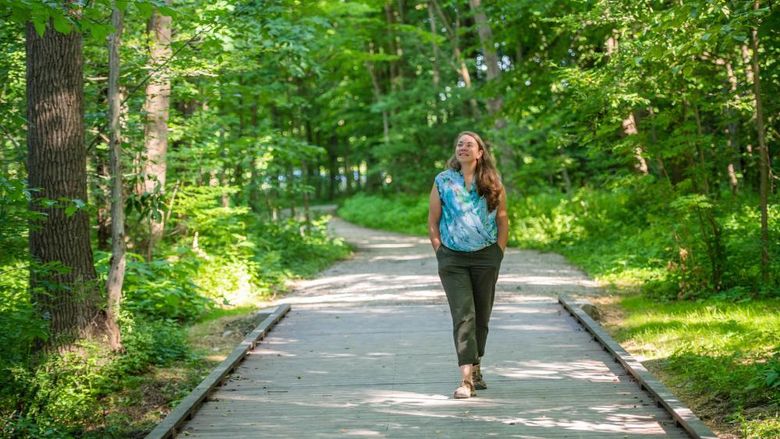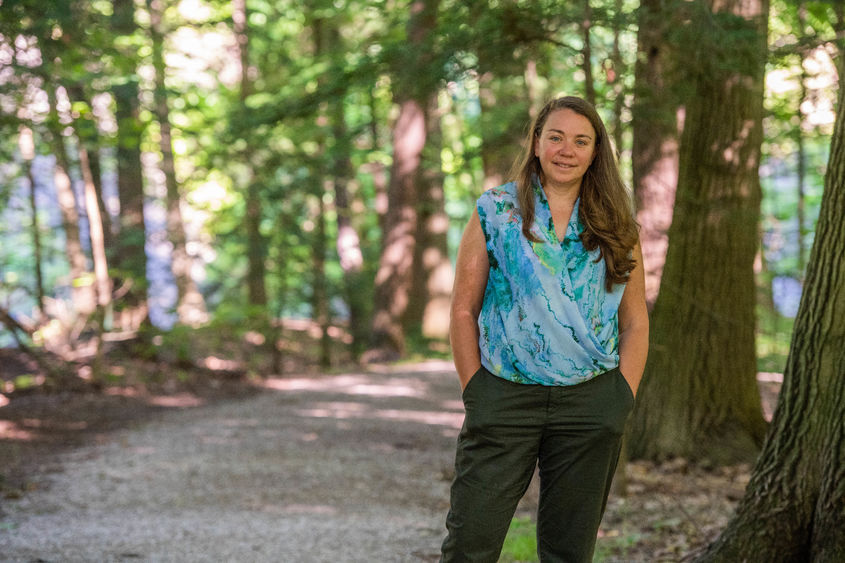
"The work we are doing here is having a direct impact on the quality of Fourmile Creek," Sherri "Sam" Mason, director of sustainability at Penn State Behrend, said of the $544,000 trail improvement project now underway at Wintergreen Gorge.
ERIE, Pa. — Penn State Behrend has begun the second phase of a comprehensive trail-improvement project in Wintergreen Gorge, a Natural Heritage Area on and adjacent to the Behrend campus. The $544,000 project will extend an ADA-accessible trail and address erosion on the trail system, which is used by hikers, trail-runners and mountain-bikers.
Construction crews have temporarily closed a portion of the primary gorge trail, from the Bayfront Connector bridge to the trailhead at the Prischak lot, near the college’s School of Science. Visitors can still access the trail system from the Cooper Road or Ohio Hall trailheads.
The project extends trail improvements that began in 2019, when the college secured $690,000 for trail work and erosion control, including boardwalks. Crews will install another 100-foot boardwalk where the primary trail bisects an “oxbow” wetland, where a section of Fourmile Creek separated from the primary flow. That area is home to several notable plant species, including pawpaw trees.
“That’s a really critical green space,” said Sherri “Sam” Mason, the college’s director of sustainability. “We need to make an adjustment to how foot and bicycle traffic moves through there.”
A new Dry Creek Loop Trail will split off the primary trail and lead users closer to the water. That loop, like the primary trail, will be topped with crushed limestone.
Dedicated and properly designed trails will reduce erosion by encouraging visitors to stay on established paths, Mason said.
“Many of the gorge trails that are used today developed over time, as visitors created their own paths,” she said. “Some began as shortcuts. Others were a way to avoid water or mud on the original trail. These improvements will provide a more functional, ADA-accessible trail system that better protects and preserves the unique and fragile environment of Wintergreen Gorge.”
Crews also will expand a dry creek bed that was designed to collect runoff from the Bayfront Connector bridge, a 1,114-foot span that was erected in 2003. That feature works like a natural catch basin: Circular areas of stone capture runoff from the bridge, including road salt, and divert it through soil, which filters it before the material enters Fourmile Creek.
The trail project, which received funding from the Pennsylvania Department of Conservation and Natural Resources and Penn State’s Campus Beautification Fund, is expected to continue until mid-August.
The first phase of the project led to measurable improvements in the quality of Fourmile Creek, Mason said. The college tests the water every month.
“The salinity of Fourmile Creek is quote low, which is a good indication that all of the green infrastructure we put in is helping to clear the salt content before it enters the water,” she said. “The clarity of the water also is quite high. That suggests we aren’t seeing as much sediment from erosion.
“The work we are doing here is having a direct impact on the quality of Fourmile Creek,” she said.
Robb Frederick
Director of Strategic Communications, Penn State Behrend
